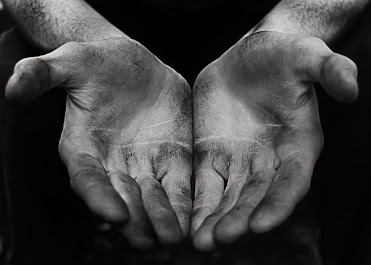 |
| Image Credit: McGill University |
The Pope's Sunday Angelus address for yesterday reported by Zenit
Biblical purity explained by the Pope in a nutshell
The day before departing for Indonesia, Singapore, Timor, and Papua New Guinea, Pope Francis led the traditional Sunday Angelus in St. Peter’s Square. Around 15,000 people gathered to listen to his Sunday address and pray the Marian Angelus with him. Below is the English translation of the Pope’s words:
***
Dear brothers and sisters, happy Sunday!
Today, in the Gospel of the liturgy (cf. Mk 7:1-8, 14-15, 21-23), Jesus speaks about the pure and the impure: a matter very dear to his contemporaries, which was linked principally to the observance of rites and rules of behaviour, to avoid any contact with things or persons considered unclean and, if this happened, to erase the “stain” (cf. Lev 11-15). Purity and impurity were almost an obsession for some religious of those times.
Some scribes and Pharisees, obsessive, strict observers of such norms, accuse Jesus of allowing his disciples to eat with unwashed hands, without washing their hands. And Jesus takes this reproach on the part of the Pharisees to His disciples to talk to us about the meaning of “purity”.
Purity, Jesus says, is not linked to external rites, but is first and foremost linked to inner dispositions, interior dispositions. To be pure, therefore, it is no use washing one’s hands several times if one then, within the heart, harbours evil feelings such as greed, envy or pride, or evil intentions such as deceit, theft, betrayal and slander (cf. Mk 7:21-22). Jesus draws attention to the need to beware of ritualism, which does not make one grow in goodness; on the contrary, this ritualism can sometimes lead one to neglect, or even justify, in oneself and in others, choices and attitudes contrary to charity, which wound the soul and close the heart.
And this, brothers and sisters, is important for us too: one cannot, for example, leave Holy Mass and, still in front of the church, stop and gossip wickedly and mercilessly about everything and everyone. That chatter that ruins the heart, that ruins the soul. And you can’t do this! If you go to Mass and then do these things at the entrance, it is a bad thing! Or to show oneself to be pious in prayer, but then treat one’s own relatives at home with coldness and detachment, or neglect their elderly parents, who are in need of help and company (cf. Mk 7:10-13). This is a double life, and one cannot do this. And this is what the Pharisees did. External purity, without good attitudes, merciful attitudes towards others. One cannot be apparently very decent to everyone, and perhaps even do a bit of voluntary work and some philanthropic gestures, but then inwardly cultivate hatred towards others, despise the poor and the least, or behave dishonestly in one’s work.
In acting in this way, the relationship with God is reduced to external gestures, and within one remains impervious to the purifying action of His grace, indulging in thoughts, messages and behaviour without love. We are made for something else. We are made for the purity of life, for tenderness, for love.
Let us ask ourselves, then: do I live my faith in a consistent manner, that is, what I do in Church, do I try to do outside in the same spirit? By my sentiments, words and deeds, do I make what I say in prayer tangible in closeness and respect for my brothers and sisters? Let us think about this.
And may Mary, Mother most pure, help us to make our life, in heartfelt and practiced love, worship pleasing to God (cf. Rm 12:1).
To read this on the Zenit website click here.

